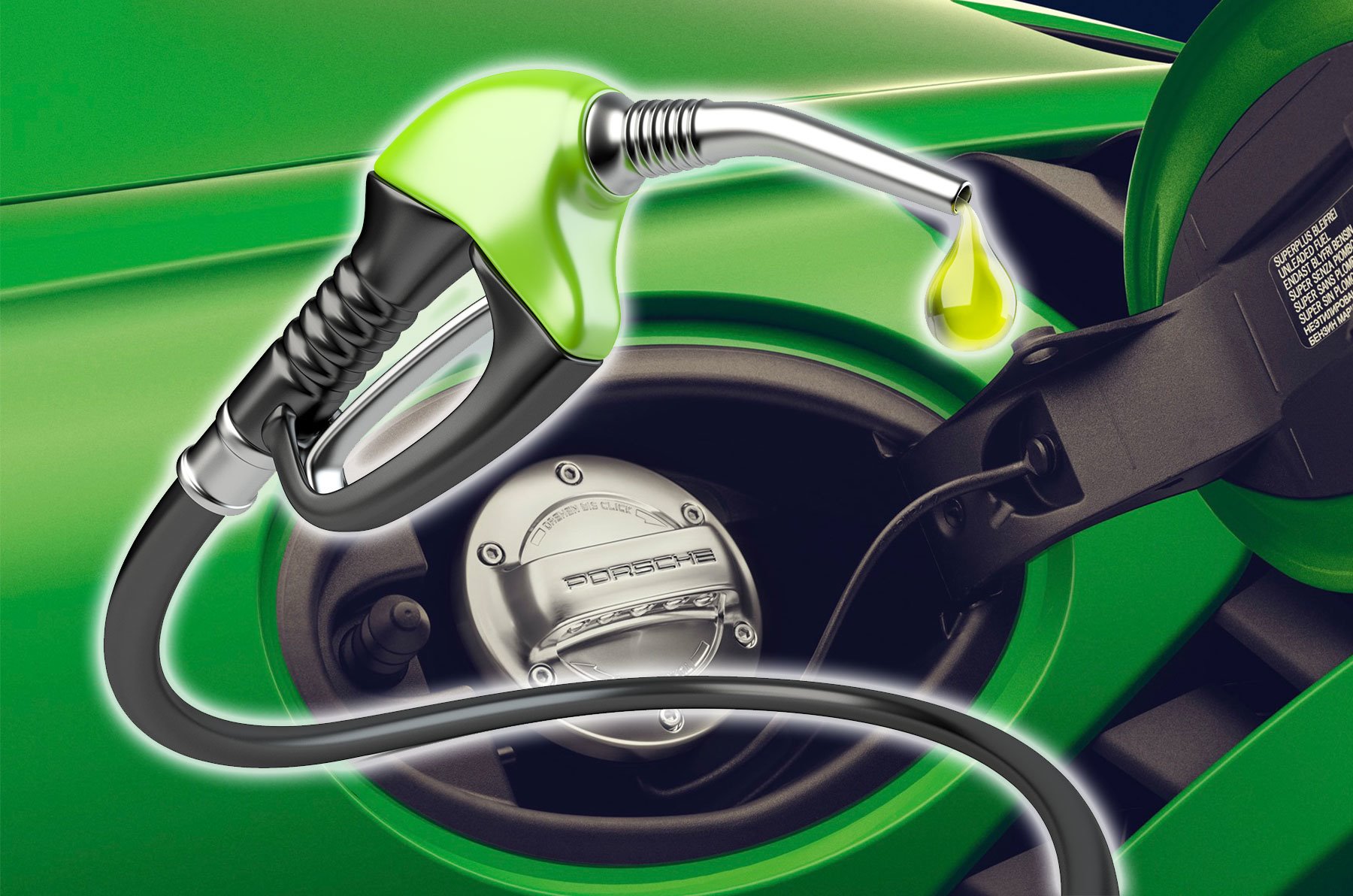
Germany finally came to an agreement with the EC in March that would allow the sale of vehicles that run on these ‘carbon neutral’ fuels after the date of the ban. But this deal opens up a raft of questions about the feasibility, cost and long-term realities of e-fuel-powered vehicles.
What are e-fuels?
E-fuels are synthetic alternatives to fossil fuels that are made from hydrogen and CO2. They can be used in traditional combustion engines and distributed using networks that already exist.
The hydrogen needs to be produced using renewable or CO2-free energy and the CO2 has to come from capturing emissions in order for them to be considered carbon neutral.
E-fuels do still produce CO2 when they are burnt but those emissions are theoretically offset by the amount taken out of the atmosphere to produce the fuel.
Will e-fuels be competitive in the near future
Audi boss Markus Duesmann told German news website Der Spiegel earlier this year that synthetic fuel “will not play an important role in the medium-term future of passenger cars.” E-fuels aren’t currently produced on a big enough scale for what is needed either.
The first-ever commercial e-fuel plant opened in Chile in 2021. It aims to produce 550 million litres per year and has been backed by automaker Porsche. Norway’s Norsk e-Fuel is planning to open another due to start producing e-fuel by 2024. It is hoping to scale up its operation to produce 25 million litres by 2026, but will mainly focus on aviation
An analysis by campaigning NGO Transport & Environment (T&E) found that by 2035, there will only be enough synthetic fuels for around 2 per cent of Europe’s cars. That means just 5 million of the EU’s projected 287 million cars could run on these fuels.
Another recent analysis by T&E found that e-petrol could cost more than €2.80 per litre at the pump in Germany by 2030. That is almost 50 per cent more expensive than regular petrol is today.
Manufacturing e-fuels is extremely sophisticated
The actual process of making e-fuels itself is complex and energy intensive. Electrolysis is used to create hydrogen, and other chemical reactions are needed to turn it into liquid fuel. Capturing CO2 is also an expensive task and the technology to do it still falls short of expectations.
Overall e-fuels currently require more energy to produce than what is needed to power an equivalent fleet of electric vehicles. In a damning study, T&E found last year that an electric vehicle could travel five to six times further than an e-fuel car on the same amount of renewable electricity.
Are e-fuels really ‘carbon neutral’?
The process to produce e-fuels captures CO2 from the air, theoretically offsetting the emissions they create when they burn. By using green energy to produce green hydrogen, supporters say this makes them a good alternative tool to reaching net zero.
Those in opposition point out that, while they may be ‘carbon neutral’, e-fuels still emit other pollutants when they burn. This includes toxic nitrogen dioxide and carcinogenic particles that are released into the air.
And generating them using green hydrogen could also be an uphill struggle. Currently, more than 96 per cent of hydrogen produced in Europe comes from natural gas
Those who support e-fuels say that they offer a chance to cut carbon emissions without having to replace every vehicle with an electric one. They can also be stored at room temperature and shipped worldwide unlike electricity.
The industry lobby group eFuel Alliance says “If the market conditions and production rules are right, e-fuels can start to be produced in 2025 and steadily ramped up to allow the replacement of conventional fuels in 2050.”
Why are e-fuels so important to Germany?
In Germany, the support comes because of the roughly 800,000 jobs that currently rely on the production of combustion engine vehicles. Recent opinion polls have also found that 68 per cent of people oppose the EU ban on petrol and diesel cars.
And there are sectors where e-fuels make sense. Some policymakers argue that limited supplies of e-fuels should be saved for aviation and shipping, where electrification isn’t a practical option due to the weight of batteries.